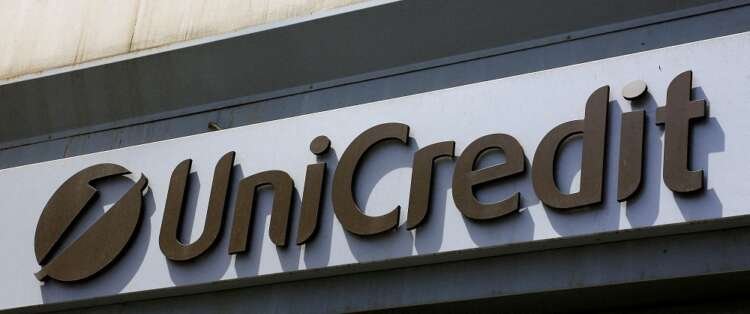UniCredit cheers investors with buyback as Russia hits profit


By Valentina Za
MILAN (Reuters) -UniCredit surprised investors by saying it will soon start a 1.6 billion euro ($1.7 billion) share buyback put at risk by the Ukraine war, even as Russia-related provisions drove first-quarter profit down 70%.
UniCredit is one of Europe’s banks most exposed to Russia, where it runs AO UniCredit Bank, which two people close to the matter said it has been looking to sell.
Shares in UniCredit rose more than 6% in early trade, having lost nearly half their value since reaching a four-year high in early February on the back of payout promises from Chief Executive Andrea Orcel.
Italy’s second-biggest bank on Thursday stuck to a pledge to return to investors at least 16 billion euros in dividends and share buybacks by 2024.
After Russia invaded Ukraine in what Moscow describes as a “special military operation”, UniCredit confirmed cash dividends on 2021 results but made a proposed 2.6 billion euro buyback contingent on its core capital ratio remaining above 13%.
“Confirmation of a 1.6 billion euro buyback regulatory approval (around 9% market cap) is a key positive surprise,” Jefferies said.
UniCredit said it was confident that it will also deliver the remaining 1 billion euro portion of its proposed buyback.
‘COMPLICATED’ RUSSIAN EXIT
Core capital fell to 14% in the first quarter, down from 15% at the end of 2021, as UniCredit booked 1.3 billion euros in loan loss provisions in the period, mostly related to Russia.
Orcel said a full writedown on its Russian business would now have no capital impact thanks to the provisions, which JPMorgan analysts said were “conservative” and would be well received by markets.
The CEO told reporters “the direction of travel … and where our stakeholders want us to go” in relation to Russia was clear but “exit from a country is complicated”.
“We’ll communicate things when they’re executed, not while they’re in progress,” he said.
In the meantime UniCredit has managed to reduced its Russian exposure by a gross 2 billion euros, he said, partly through transactions such as asset swaps with non-sanctioned Russian counterparties that had business in Europe.
Orcel said the worst-case loss from Russia stood at 5.2 billion euros, down from 7.4 billion euros. That assumes a 69% recovery rate on cross-border loans, it said.
Net profit came in at 247 million euros, below an average analyst forecast of 413 million euros. Operating income, however, totalled 5 billion euros to beat analyst expectations of 4.4 billion euros thanks to higher core revenue and strong trading gains.
($1 = 0.9423 euros)
(Reporting by Valentina ZaEditing by Keith Weir and David Goodman)
A share buyback occurs when a company purchases its own shares from the marketplace, reducing the number of outstanding shares and often increasing the value of remaining shares.
Loan loss provisions are funds set aside by banks to cover potential losses from loans that may not be repaid, reflecting the bank's assessment of credit risk.
A dividend is a payment made by a corporation to its shareholders, usually as a distribution of profits. It can be issued in cash or additional shares.
Core capital refers to the capital that banks must hold as a buffer against losses, typically consisting of common equity and retained earnings.
A capital ratio is a financial metric used to assess a bank's capital relative to its risk-weighted assets, indicating its financial stability and ability to absorb losses.
Explore more articles in the Investing category











